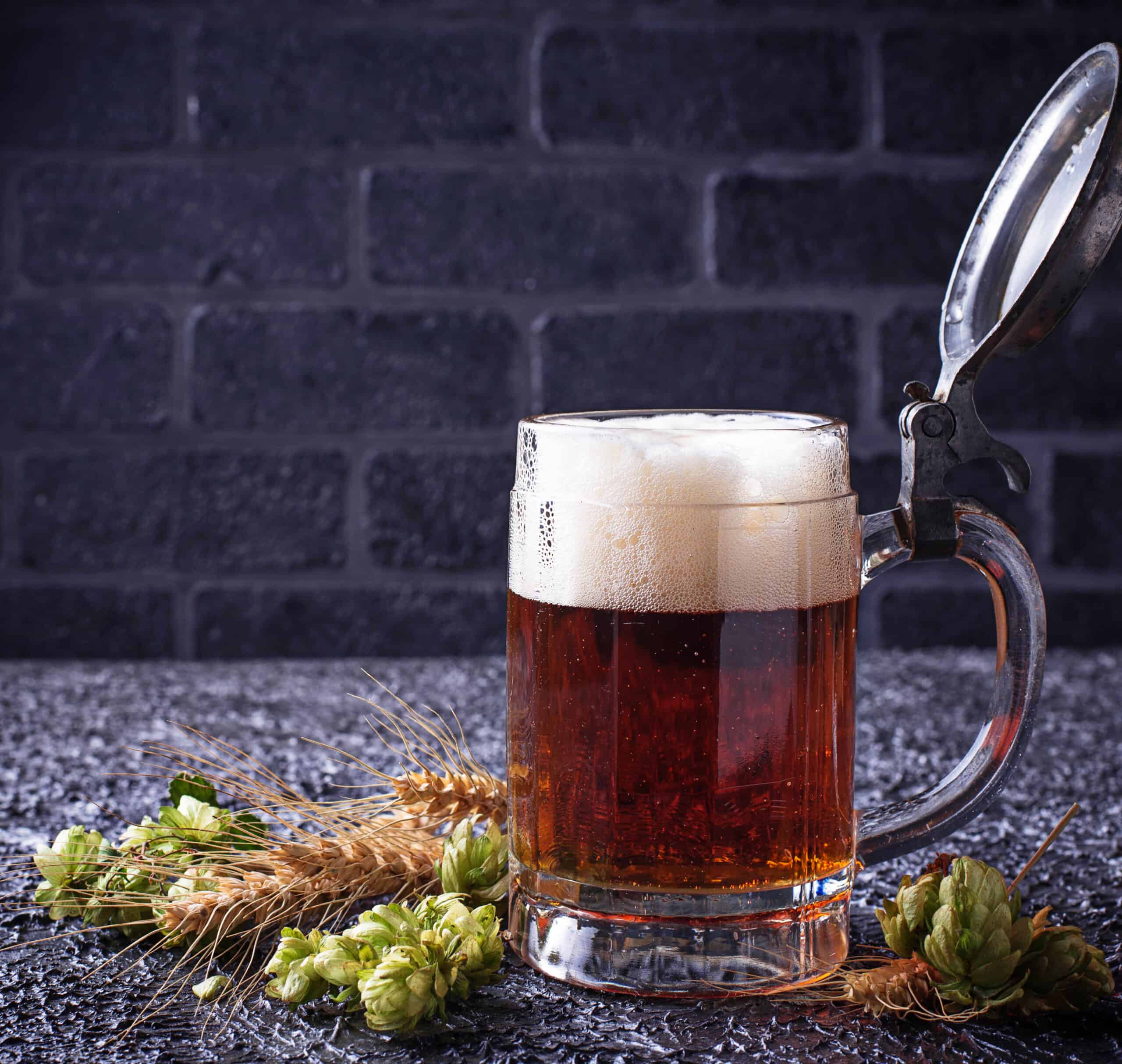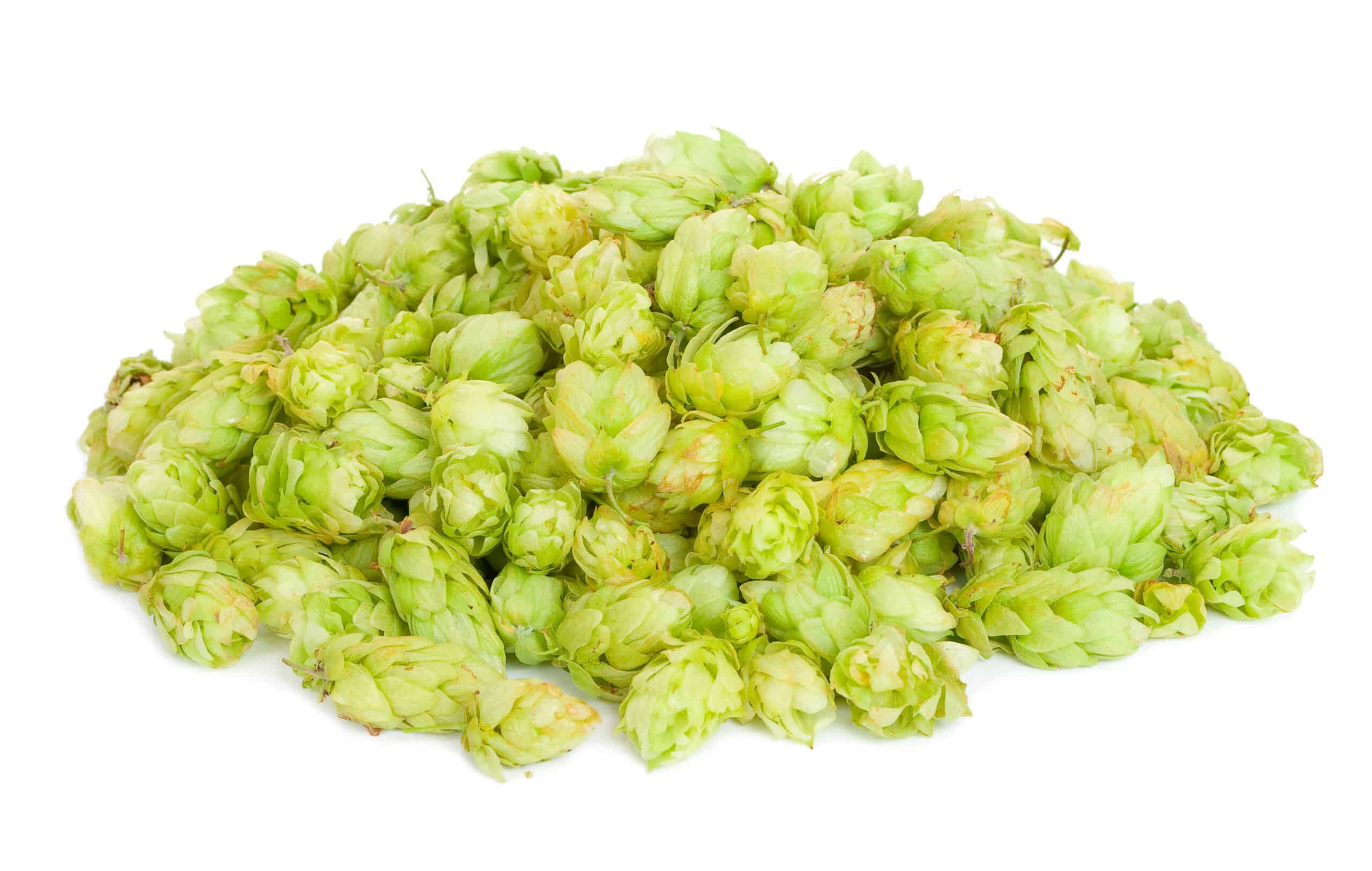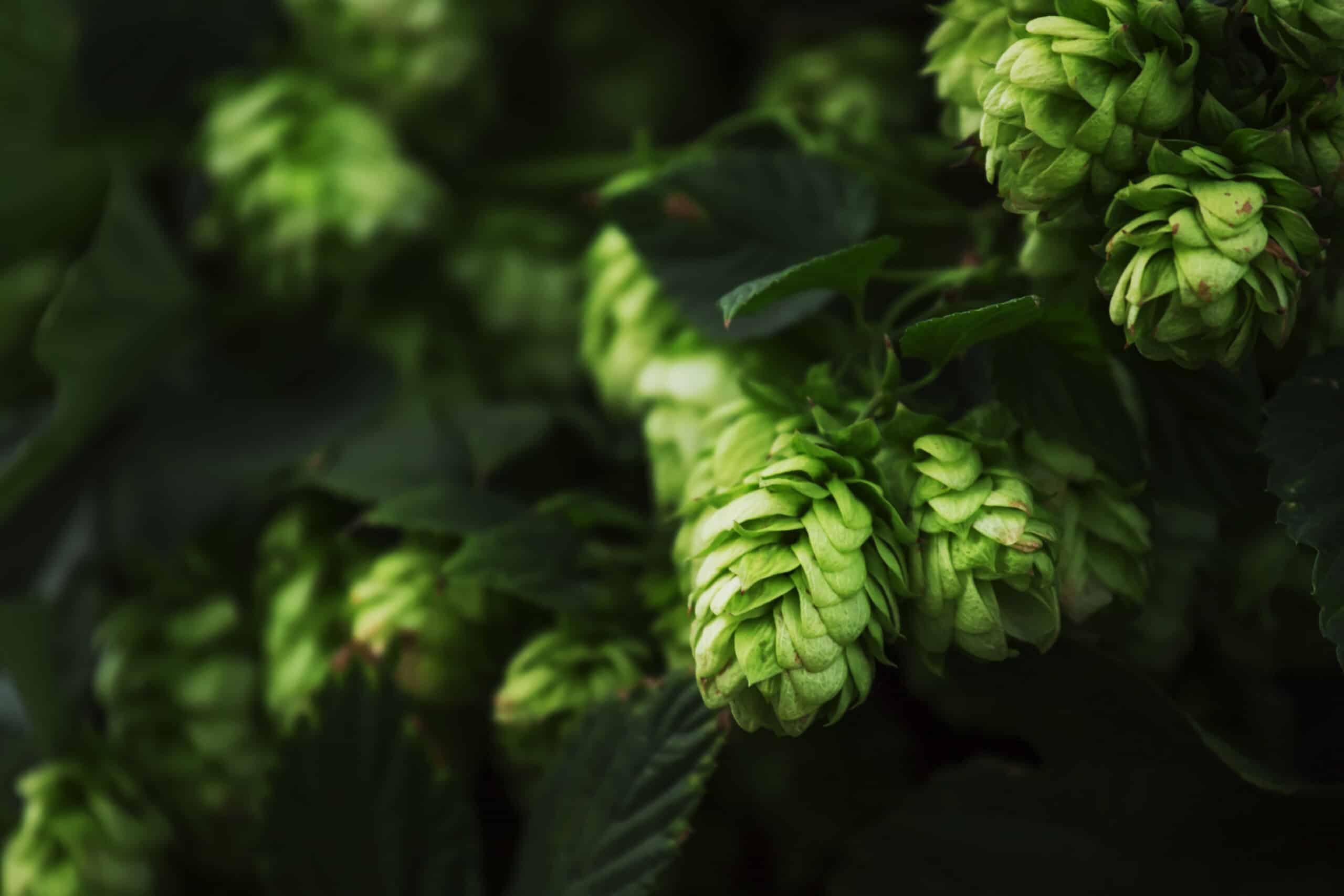- Rye Malt Guide – How to Use This Malt for Distinctive Homebrews - November 24, 2022
- Aromatic Malt Guide – Why I Use This Malt in My Homebrew Recipes - November 19, 2022
- Willamette Hops Guide – Why I’m a Fan of This Classic American Hop - November 9, 2022
Who wants a free beer? We’re sure that will include a pretty large number of people! While brewing your own beer isn’t quite free, you could be looking at just a few cents per bottle of Rakau hops homebrew in the long run.
Of course, before starting on your homebrewing journey, you’ll need to get your hands on the best home brewing equipment to start you off.
Choosing the right home brewing ingredients is the next big step you need to take, and while you have over 80 different varieties of hops to choose from, we’re here to talk about Rakau hops in particular. A really versatile and beautifully flavored hop. If you’ve been pondering whether or not you should use Rakau hops, then read on and find out more.
So without further ado, let’s jump straight in and get brewing.
What are Rakau Hops?
Rakau Hops (New Zealand) - Pellets. Alpha: 10.0 - 11.0%,Beta: 5.0 - 6.0% . Aroma: Fresh orchard fruits, specifically apricots with some resinous pine needle characteristics are noted.
It won’t surprise us if you haven’t come across Rakau hops before if you’ve started to do your own research into the different hops available. It’s certainly not quite as infamous as varieties like Mosaic hops or Cashmere hops, but we think that it is just as good and well worth your time.
Rakau hops, originally known as AlphAroma, come from New Zealand, and they have a pretty interesting history. It was initially bred way back in the 1970s from Smooth Cone hops but wasn’t released to the general public until 1983, and it then pretty much disappeared.
All was not forgotten, as the Kiwis remembered the unique flavor profile of this versatile little hop variety. In 2007, Hort Research rediscovered and re-released Rakau hops onto the market with its new name. Some people, such as Duchess Hops in New York, still cultivate Rakau hops under the name AlphAroma, so it can get a little confusing.
Some people also end up misspelling Rakau and call it Raku – which again adds another layer of a headache to sorting out your hops and knowing what you’re getting!

Flavor Profile
When it comes to choosing a hop variety, any homebrewer worth their malt will know that the flavor profile of the hops is probably the most important thing to consider. After all, you don’t want to end up with a few gallons of undrinkable IPA or Stout because the hops don’t quite fit the profile!
Rakau hops is a variety of hops bursting with huge fruit-first character – it’s even been described by the hop breeder as ‘the whole orchard,’ and we couldn’t agree with that statement more. With some very light fresh pine notes with a touch of lime, leading to much bolder stone fruit flavors, Rakau hops offer up a pretty unique flavor profile.
Let’s have a look at the other flavors you’ll end up with if you use Rakau hops in your next homebrew:
- Mango
- Pear
- Plum
- Apricot
- Fig
- Pine
- Passion fruit
- Peach
- Resin
Rakau Hops – Ingredients
Hop cultivators are becoming more and more like scientists nowadays, combining different styles of hops to make remarkable hybrids and unique flavor profiles. It’s a fascinating and continually moving world, as you can create very select flavor profiles by combining particular plants and varieties with each other and seeing what happens.
Rakau hops are no different, other than the fact that it was originally first developed way back in the 1970s, making it one of the very earliest hybrids hops you can find. It derives from Smooth Cone hops with elements of Czech Saaz hops and uses open pollination, an often tricky method of hybridizing a hop variety.
Owing to its age and its early development, the original composition used for Rakau hops may have fallen by the wayside – plus, as it’s an old hybrid, it will have been able to take root and develop itself over the intervening years, from 1983 to its rediscovery and rerelease in 2007.
How to brew beer with Rakau Hops
So what do you do with your Rakau hops now you have them? And what sort of beer works best with this unique and historic hop variety? Owing to its fruit-forward flavor, many people use it for ‘big’ IPAs, but because it isn’t as pungent and ‘dank’ as other New Zealand hops, it can be used in other styles of beer really easily.
With unique fruity aromas and flavors, combined with a freshness and a really nice bitterness, Rakau hops can be used to great success in a whole range of different beer styles. Available in both pellet form and whole, the beers that work well with Rakau hops include:
When to add Rakau Hops

As it is a really clean, fruity, and efficient bittering hop, Rakau hops really benefits from being a late addition to brews. As it has such a potent flavor profile, it also lends itself to dry hopping and even whirlpool additions. This will end up maximizing those wonderful tropical fruit vibes that make this variety of hops such a hit.
The wonderful tropical overtones of this hop and its clean bitter flavors make it an ideal candidate for a single-hop IPA as well. After all, you’re dealing with a hop that is described by the producers as ‘the whole orchard,’ so you don’t really need to have anything combined with it.
Complimentary Hop Varieties
Many homebrewers are as scientific as the hop hybrid creators themselves and love to figure out complimentary hop varieties that some people might see as rebellious or impossible. That’s all part of the fun of homebrewing, though, as sometimes you strike gold with your blends, and other times you might end up with a brew that’s slightly too intense.
When it comes to Rakau hops, you’ll end up with an absolute showstopper of a beer if you just use them on their own. If you’re channeling your inner nutty professor, you can always consider adding these hops to your brew, as they all work pretty well with Rakau hops – complimenting the tropical vibes while not masking them.
- Moteuka
- Pacific Jade
- Centennial
- Columbus
- Falconer’s Flight
- Wakatu
- Calypso
Acid & Oil Composition
Acid Compositon
| ALPHA ACID (%) | 9 – 12% |
| BETA ACID (%) | 5.0 – 6.0% |
| ALPHA-BETA RATIO | 2:1 – 2:1 |
| HOP STORAGE INDEX | 25% (good) |
| CO-HUMULONE AS % OF ALPHA | 23 – 25% |
| TOTAL OILS (mL/100g) | 1.8 – 2.2mL |
Oil Composition
| MYRCENE
(flavors – resinous, citrus, fruit) |
55 – 57% |
| HUMULENE
(flavors – woody, spicy) |
16 – 17% |
| CARYOPHYLLENE
(flavors – pepper, woody, herbs) |
5 – 6% |
| FARNESENE
(flavors – floral, green, fresh) |
4 – 5% |
| ALL OTHERS (including linalool, β-pinene, geranoil & selinene) | 15 – 20% |
Rakau Hops – Alternatives
If you’re having difficulty getting your hands on some Rakau hops, or maybe you’ve just run out of it when it comes to brewing your next batch, you can always have a go at using a different variety of hops. While it’s nearly impossible to find a hop variety that is the same, you can find varieties that are worthy substitutes and give you a similar vibe to Rakau hops.
Amarillo hops
It features higher levels of alpha acids along with extremely high levels of myrcene for citrus and grapefruit flavors. As a result, it is an excellent dual-purpose variety.
This variety of hops was discovered accidentally back in the 90s and is often used as what’s known as an aroma hop. Amarillo hops will give you really gorgeous and distinct floral notes, with a good citrus hit and some tropical tones that will give Rakau hops a run for their money.

Summit hops
Quite new on the scene (2003) but the consensus is very positive with its 'peak' bittering value coupled with robust citrus notes of orange, tangerine and grapefruit.
If you love the peppery, almost garlic-y vibes that you get with Rakau hops, then Summit hops are a fabulous alternative. Packed with slightly bitter citrus and earthy notes, Summit hops are commonly used as a bittering hop, and they can pack a punch, focusing on the more earthy notes that you get from Rakau hops.
Saaz hops
Czech Saaz Hops are A Czech landrace variety. Bred by Hop Products Australia in 1997 at Bushy Park Breeding Garden. Mainly used as an Aroma hop. It has the classic "noble" aroma. Flavors of Mild spice and earth tones.
One of the hops that Rakau derives from, Saaz hops, sometimes known as Czech Saaz, are one of the most frequently used varieties of hops in the world. And for good reason, too – they’re perfectly balanced, crisp, and give a really lovely warm herbal flavor to the beer. They’re a great and easy-to-find alternative to Rakau hops.

Frequently Asked Questions
Let’s go through some of the more frequently asked questions about Rakau hops and how you might go about using it in your next batch of homebrew.
Question: What are Rakau hops?
Answer: Rakau hops are a variety of hops first developed and hybridized in New Zealand way back in the ’70s. They were forgotten about for several decades, and then rediscovered in 2007, and have since gone on to become a popular hop variety.
Question: What does Rakau taste like?
Answer: Rakau hops are imbued with plenty of tropical fruit flavors plus a little bit of a piney overtone and some citrusy notes as well. There’s a good clean bitterness to them, too, making them a very versatile hop to use.
Question: What hops pair well with Rakau?
Answer: Owing to the already wonderful flavors of Rakau, you don’t want to over-egg the pudding, as they say, and spoil the delicate tropical stone fruit hit that Rakau gives you. Still, you can use other varieties of hops like Columbus and Centennial to give your beer a little bit of extra bitterness.
Final Thoughts
If you have been considering using Rakau hops in your homebrew, then you’re clearly a brewer with excellent taste! Rakau hops may not be as well known as other varieties of hops from the Southern Hemisphere, but they really pack a punch and can really level up your homebrewing prowess. So swot up on your homebrewing science, and get brewing today!
Rakau Hops (New Zealand) - Pellets. Alpha: 10.0 - 11.0%,Beta: 5.0 - 6.0% . Aroma: Fresh orchard fruits, specifically apricots with some resinous pine needle characteristics are noted.





